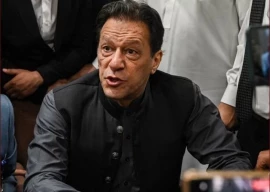
Balochistan Chief Minister Nawab Aslam Raisani pledged to implement recommendations made by a judicial tribunal in its report on the Kharotabad shooting. However, the parts of the report made public on Saturday do not have any specific recommendations – even against those officials held clearly responsible for the shooting deaths of five unarmed foreigners on May 17.
However, though unarmed, the tribunal, on account of evidence, stated that it appeared that all five foreigners had received terrorist training and had “active linkages” with some banned terrorist organisations operating in Pakistan. It said that they could have been caught alive which would have been highly beneficial to the security forces in terms of unfolding the entire network. “Due to the callous stupidity of the police and FC officials, the possibility of unearthing an entire terrorist network will remain shrouded in mystery,” the report said.
The tribunal held four officials of the police and FC accountable, saying that former Capital City police officer Quetta Dawood Junejo and FC Lt Colonel Faisal Shehzad, being the highest ranking officer and commander of police present at the spot, displayed an absolute lack of professional competence, initiative and foresight that would be expected from them.
Junejo showed a lack of courage in the planning and ability to organise and act in a befitting manner, despite ample time at his disposal, and thus, by not taking the right action at the right time, had made himself liable to being brought to book.
The tribunal said that Lt Colonel Shehzad had in fact gone one step ahead by “willfully resorting to the massacre, instead of capturing the foreigners alive, thereby showing a culpable lack of courage, planning ability and determination to properly organise and handle the situation.”
SHO Kharotabad Fazalur Rehman and ASI Raza Khan of the airport police station were declared the two main officials responsible for the incident.
“They committed a culpable act of the worst order by not conveying the right message to the police control, which later resulted in the catastrophic death of the five foreigners and one live foetus. They could have easily been captured,” said the report, adding: “In addition to that, ASI Raza showed willful silence by not informing the police or the FC officers about searching the foreigners”.
‘Recommendations’
The tribunal only made a few general and overarching recommendations to thwart such incidents in the future, such as revamping of the police force in order to make them self-sufficient in handling major law and order situations.
The report also suggested that explosive-detectors should be made available at every police station keeping in view the prevailing law and order situation.
The tribunal’s report said that, despite the worsening law and order situation, no heed has been paid to ensuring strict checking by law enforcing agencies of the border areas to stem foreigners who enter Pakistan illegally.
The tribunal recommended installing CCTV cameras at
all entry points of Quetta as well as entry points of the country.
‘Confusing the truth’
The tribunal observed that some police officials had not only resorted to the tactics of “confusing the truth” by planting fake witnesses, but had also maltreated two of the witnesses, Jamal Tarakey and Dr Syed Baqir Shah, under the guise of “fake allegations”.
The tribunal said that it was revealed that except for Mukumov/ Numan, all others were Russians nationals, residents of Dagestan Republic.
Mogomedove alias Abdul Aziz and Sherkolovenauh visited Iran [Mashhad City] for seven days [November 28 to December 5, 2010] as evident from the Iranian visa in their passports, whereas Mukumov/Numan, a resident of Doshambay city, Tajikistan and Olga Shreder, a resident of Saakha Republic (Yakootia) Russi, visited Mashhad City as was evident from the visa of the Iranian government on their passports issued by the Tajkistan and Russian governments respectively. They stayed in Iran for three days [November 30 to December 2, 2010].
The tribunal further said that the evidence led to the conclusion that the foreigners had entered Pakistan through infrequent routes, while in possession of explosive devices and material.
“The evidence leads to the conclusion that such material was brought by them from abroad, so as to provide help and assistance to the terrorist organisation operating in Pakistan,” the tribunal said in the report.
Meanwhile, Inspector General Balochistan police Rao Amin Hashim said that the police would implement the recommendations of judicial tribunal once they receive the report.
Published in The Express Tribune, July 3rd, 2011.
1731916090-0/sabrina-(3)1731916090-0-405x300.webp)


1732020599-0/BeFunky-collage-(73)1732020599-0-165x106.webp)
1731926127-0/zayn-(1)1731926127-0-165x106.webp)

1724319076-0/Untitled-design-(5)1724319076-0-270x192.webp)










COMMENTS (9)
Comments are moderated and generally will be posted if they are on-topic and not abusive.
For more information, please see our Comments FAQ